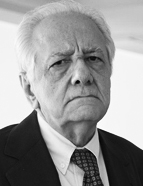

In Washington, he took advantage of the collections at the Library of Congress. In New York, he visited the New York Public Library and the Dag Hammarskjöld Library (at the UN headquarters). These libraries provided valuable sources for the writing of the historian's first major work of his adult phase: Olinda Restaurada – guerra e açúcar no Nordeste [Olinda Restored — war and sugar in the north-east], 1630-1654, published in 1975. The diplomat's posting to Europe was essential for completing this work. When he was assigned to the Brazilian Delegation in Geneva, in 1970, he used the month allocated for his relocation to conduct research on manuscript sources in Lisbon (Arquivo Histórico Ultramarino [Overseas Historical Archive], Biblioteca da Ajuda [Ajuda Library] and Biblioteca Nacional de Lisboa [National Library in Lisbon]). In 1973, upon his return to Brazil, he researched Dutch-origin materials in the José Higino collection (from the Instituto Arqueológico, Histórico e Geográfico Pernambucano [Archaeological, Historical and Geographical Institute of Pernambuco]) and documents relating to the Dutch period belonging to the collection of the Biblioteca Nacional do Rio de Janeiro [National Library in Rio de Janeiro].
Evaldo Cabral de Mello was 39 when he published Olinda restaurada . The work, published by the Publishing House of the University of São Paulo (Edusp/Forense), had a significant historiographical impact, gaining national recognition and winning the Joaquim Nabuco History Prize from the Academia Brasileira de Letras [Brazilian Academy of Letters] (ABL) in 1976. That same year, the book earned him international academic recognition, receiving positive reviews from esteemed historians such as Stuart B. Schwartz and Charles R. Boxer, published in Oxford University Press and Duke University Press, respectively. In the late 1960s, Charles R. Boxer, a British historian then regarded as the foremost expert on the Dutch in Portuguese America, even suggested a moratorium on research on the subject, feeling that enough valuable work had already been completed on the period, as noted in Stuart Schwartz’s review (1976).
This work is financed by national funds through FCT - Foundation for Science and Technology, I.P, in the scope of the projects UIDB/04311/2020 and UIDP/04311/2020.
